Search
Did you mean: Ur?
Search Results
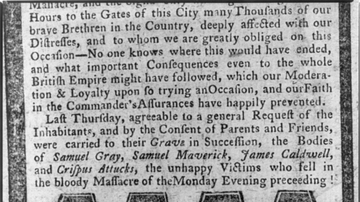
Image
Four Coffins of the Victims of the Boston Massacre
A newspaper clipping from the Boston Gazette reporting on the funeral of four of the victims of the Boston Massacre, represented by an image of four coffins, each bearing the initials of a victim. These names from left to right include: Samuel...
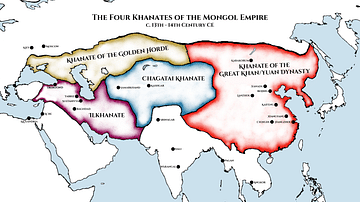
Image
Four Khanates of the Mongol Empire
A map of the four Khanates of the Mongol Empire, after its division in 1259 CE.
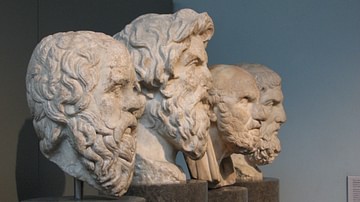
Image
Four Greek Philosophers
Marble portrait heads of four Greek philosophers (Socrates, Antisthenes of Athens, Chrysippus, and Epicurus), Roman copies after Hellenistic originals.
The British Museum, London.
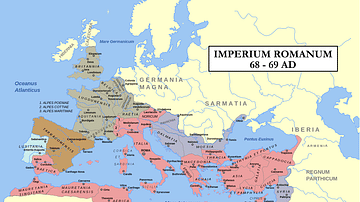
Image
Map: Year of the Four Emperors
Map of the Roman Empire during 69AD, the Year of the Four Emperors. Coloured areas indicate provinces loyal to one of four warring generals.
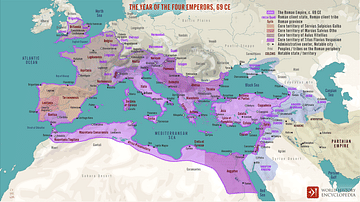
Image
The Year of the Four Emperors, 69 CE
A map illustrating the fluctuation of powers in the Roman Empire during 69 CE (also known as The Year of the Four Emperors,) a turbulent period in Roman history that involved the rapid succession of Galba, Otho, Vitellius, and Vespasian as...
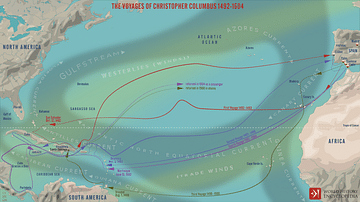
Image
The Four Voyages of Christopher Columbus
A map illustrating the four voyages of Christopher Columbus to the Americas between 1492 and 1504 superimposed on a scheme of the predominant ocean currents and winds of the North Atlantic.
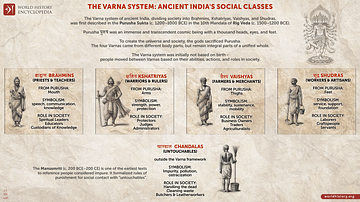
Image
The Four Castes of Ancient India - The Varna System
This infographic illustrates the Varna caste system in ancient India. First mentioned in the Rig Veda's Purusha Sukta c. 1200–1000 BCE, it shows society divided into four groups that emerged from the sacrifice of Purusha, a transcendent and...
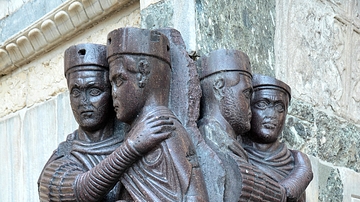
Image
Portrait of the Four Tetrarchs
Porphyry sculpture portraying the four Tetrarchs (Diocletian, Maximianus, Galerius and Constantius Chlorus) embracing. It is dated to c. 300 CE and was sculpted in Asia Minor. It probably originally decorated two separate pillars in Constantinople...
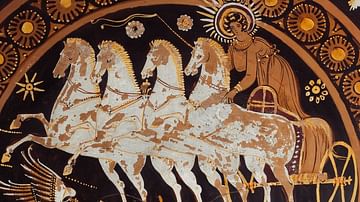
Image
Eos in Her Four-horse Chariot
Eos in her four-horse chariot, detail of terracotta red-figure lekanis vase attributed to the Stuttgart group, from Canosa, late 300s BCE.
Metropolitan Museum of Art, New York.
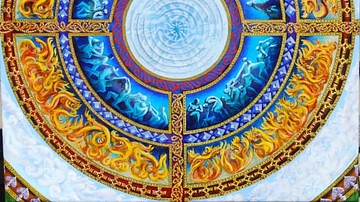
Image
The Four Elements
The Four Elements. Painting by Mana Lesman. Used with the permission of the artist.